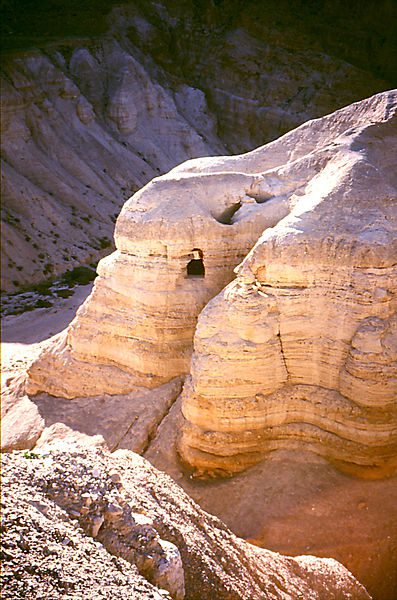
In summary remarks at the end, Jim Charlesworth stressed how much we don’t have from antiquity. He says that the typical notion is that we now have about 70% of the documents from the Qumran caves. On the contrary, he thinks that we possess about 3%. “We’re working in the dungheaps of history,” he said. Or, in another memorable phrase, he explained that scholars are “exploring islands of whispers in a sea of silence.”
He dismissed as nonsense the claim that the book of Esther didn’t exist at Qumran. “We have literally bushels of unidentified fragments” from the caves there. We don’t yet know that Esther wasn’t there, and we may never know.
He said that he’s convinced that a major scroll was found in Cave 4 that has disappeared somewhere. He’s been looking at it for decades.
Most people claim, too, that no documents have ever been found in the actual ruined structures at Qumran. But, again, Professor Charlesworth said that Bedouins in the area have claimed (to him) to have found fragments there that they still possess. Somewhere. And maybe they’re tell the truth. Maybe not.
Dan Bahat said in the final panel discussion that, in his view, the best and most interesting archaeological discoveries in Israel are still to be made.










